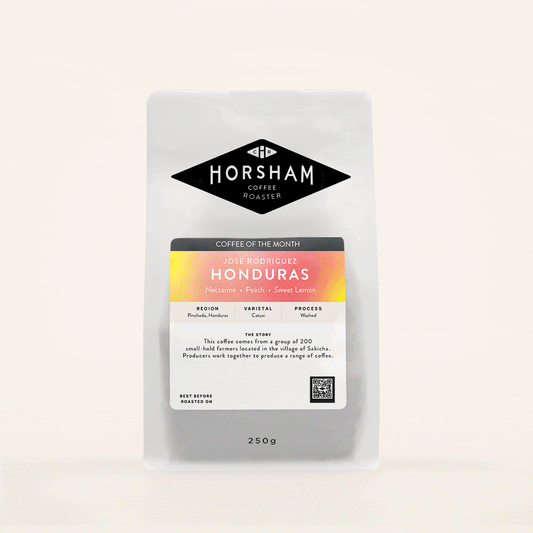Fairtrade has become a household word and many consumers love to support the concept of Fair trade but what does it really mean?
Fair trade as a definition is 'trade between companies in developed countries and producers in developing countries in which fair prices are paid to the producers.' (Oxford Dictionary Definition). By definition, this makes all the coffee we sell Fair Trade. Our focus has always been to support ethical trade. This is done directly between us and the producer and some is done through the help of specialist coffee importers.
Generally speaking, when discussing Fairtrade, most people are referring to the very well know Fairtrade foundation. The foundation was set up to certify different parts of the supply chain for many different global commodities. You've probably seen the well know Fairtrade logo on many different products including bananas, chocolate, sugar and coffee.
Fairtrade Foundation for Coffee producers
The Fairtrade Foundation works with coffee-producing co-operatives around the world. Their primary focus is to ensure that coffee-producing co-operatives with multiple working farmers always receive a fair price for the coffee that they produce. The following is a quote taken directly from Fairtrade.org.uk: 'Fairtrade certified co-operatives can count on at least the Fairtrade Minimum Price of $1.40 per pound for arabica coffee sold on Fairtrade terms (30 cents more if organic), plus an extra 20 cents per pound Fairtrade Premium to invest as they see fit – 5 cents of which is dedicated to improving productivity and quality. These tools give farmers the stability and confidence to budget for the next farming season and household expenses and drive development in their communities. For 15 of the last 25 years, when the global price for arabica coffee has often fallen well below the Fairtrade Minimum Price, it has ensured farmers can earn enough to cover at least the basic costs of sustainable production.'
This means that coffee purchased in green form from a Fair trade coffee co-operative will cost no less than $3.52/kg even when the global coffee commodity market has dropped below this price point.
Fairtrade does not certify large estate farms or small independent producers who sell directly to buyers. This means that producers like Inhame in Brazil are not able to be Fairtrade certified as they are a medium-size independent farm and not part of a co-operative. These producers might sometimes choose UTZ or Rainforest Alliance or will focus on a Direct Trade relationship model.
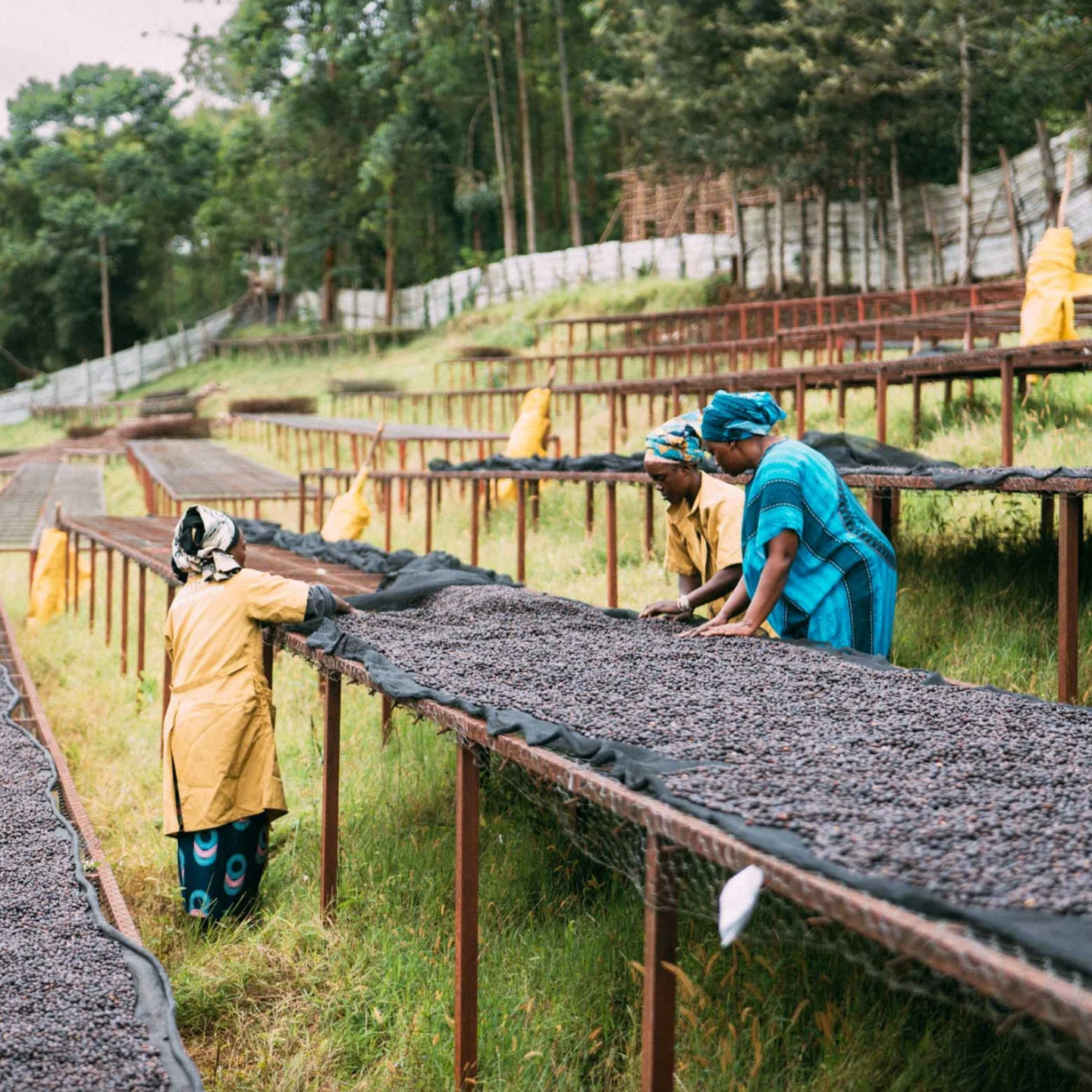
Fairtrade and cost of coffee production
The big challenge with Fair trade certification is that sometimes the base price isn't enough and might not even cover the cost of production. So what happens in this case? The cost to produce coffee is different for every country, and a one price fits all model can't cover every situation. For this reason some producers have moved away from a focus on certifications and prefer to focus on direct relationships. If a coffee producer is able to sell speciality grade coffee at a fixed yearly price, they are likely to be able to earn significantly more than the Fair trade minimum price.
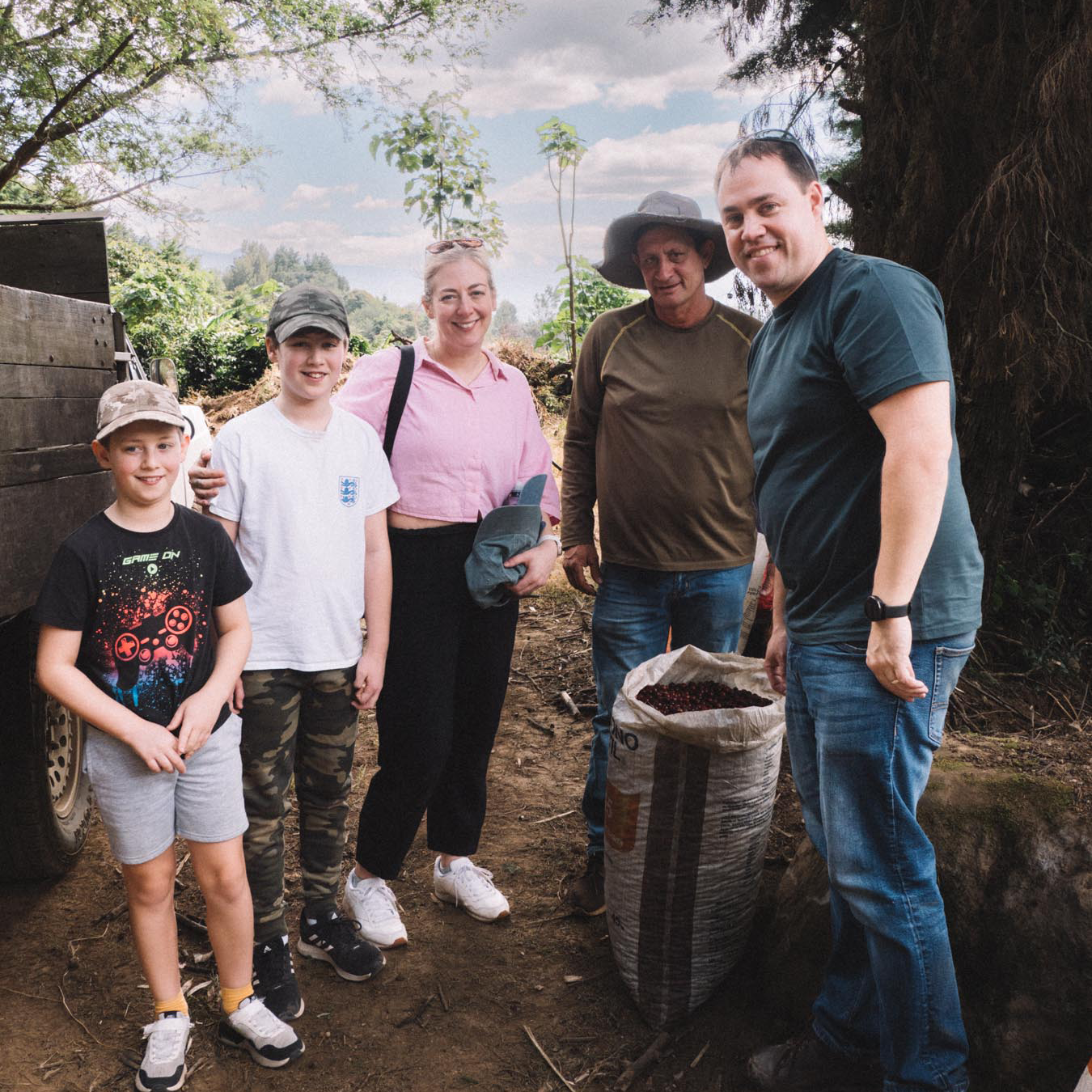
Direct trade vs Fair Trade
Direct trade is a phrase used to describe coffee buying that involves some sort for of direct connection with coffee producers. Usually, it means that an importer is working directly with producers aiming to pay more than the Fair Trade base price. Many of the coffees we source fall under this category. For example, our Relationship Coffees are perfect examples of coffees bought through our direct links with producers. Our Costa Rican coffees have been purchased at more than double the Fairtrade price from small producers who are independent and not fully associated with a co-operative. The coffees we buy from Rwanda do come from large co-operative organizations. Bwishaza is Fairtrade certified while Liza washing station is not. We pay the same price to both producers with the washed coffees earning them 1.45x and natural processed coffees 2.28x the Fairtrade minimum price.
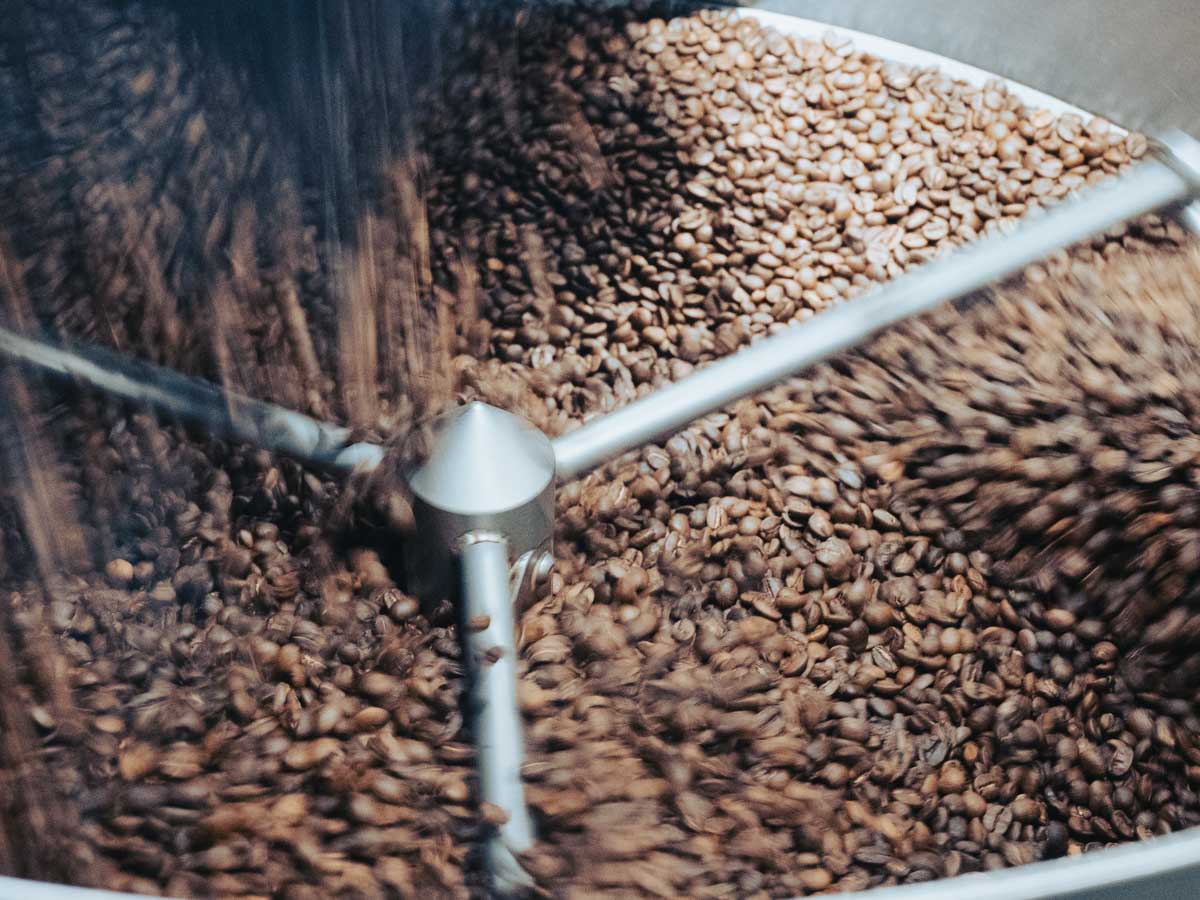
So should you only buy Fair Trade Coffee beans?
The answer to this question is both yes and no! The most important thing to do is to ensure that you buy coffee that has been ethically traded. This could be Fair Trade certified or direct trade. Always make sure you are buying coffee that has full transparency and traceability and where possible, try to buy from coffee roasters that publish a transparency report or something similar to this. We are part of a group of roasters that can be found at Transparency.coffee. While some of our coffee producers are Fairtrade certified (like Rwanda Bwishaza and Peru Cafefemenino Organic coffee) not all are, but we can assure you that our primary focus is making sure that all coffee producers we work with are paid a fair price that is well above the cost of production.
Discover Ethically Sourced Specialty Coffee
-
Horsham Coffee Roaster
Coffee of the Month Subscription
Regular price From £10.25Regular priceUnit price per -
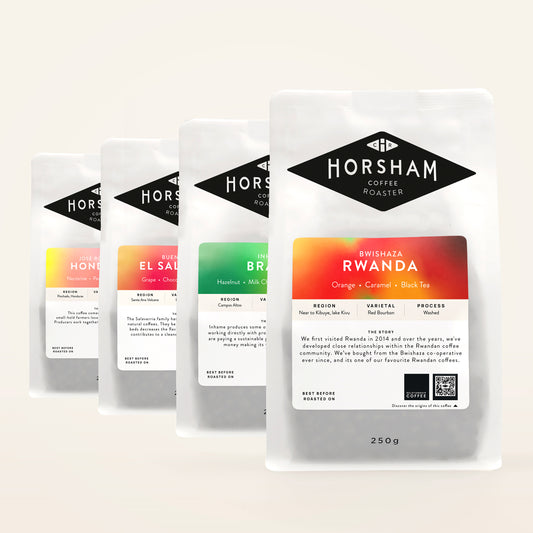 10% OFFHorsham Coffee Roaster
10% OFFHorsham Coffee RoasterSingle Origin Coffee Selection
Regular price £43.20Regular priceUnit price per£48.00Sale price £43.20Sale -
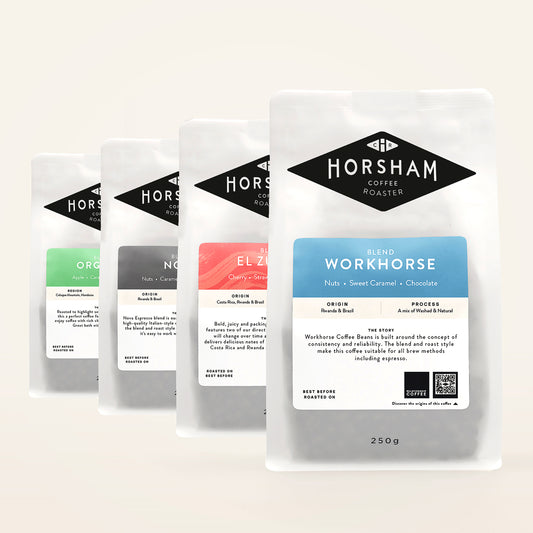 10% OFFHorsham Coffee Roaster
10% OFFHorsham Coffee RoasterBlend Selection
Regular price £35.00Regular priceUnit price per£39.00Sale price £35.00Sale -
 NEW LIMITED LOT LAST CHANCEMango | Passion Fruit | Honeydew Melon
NEW LIMITED LOT LAST CHANCEMango | Passion Fruit | Honeydew MelonArturo Arango Colombia | Thermal shock natural
Regular price From £25.00Regular priceUnit price per

